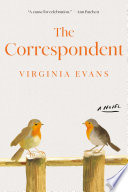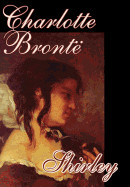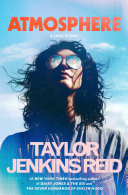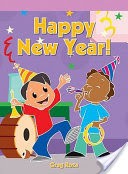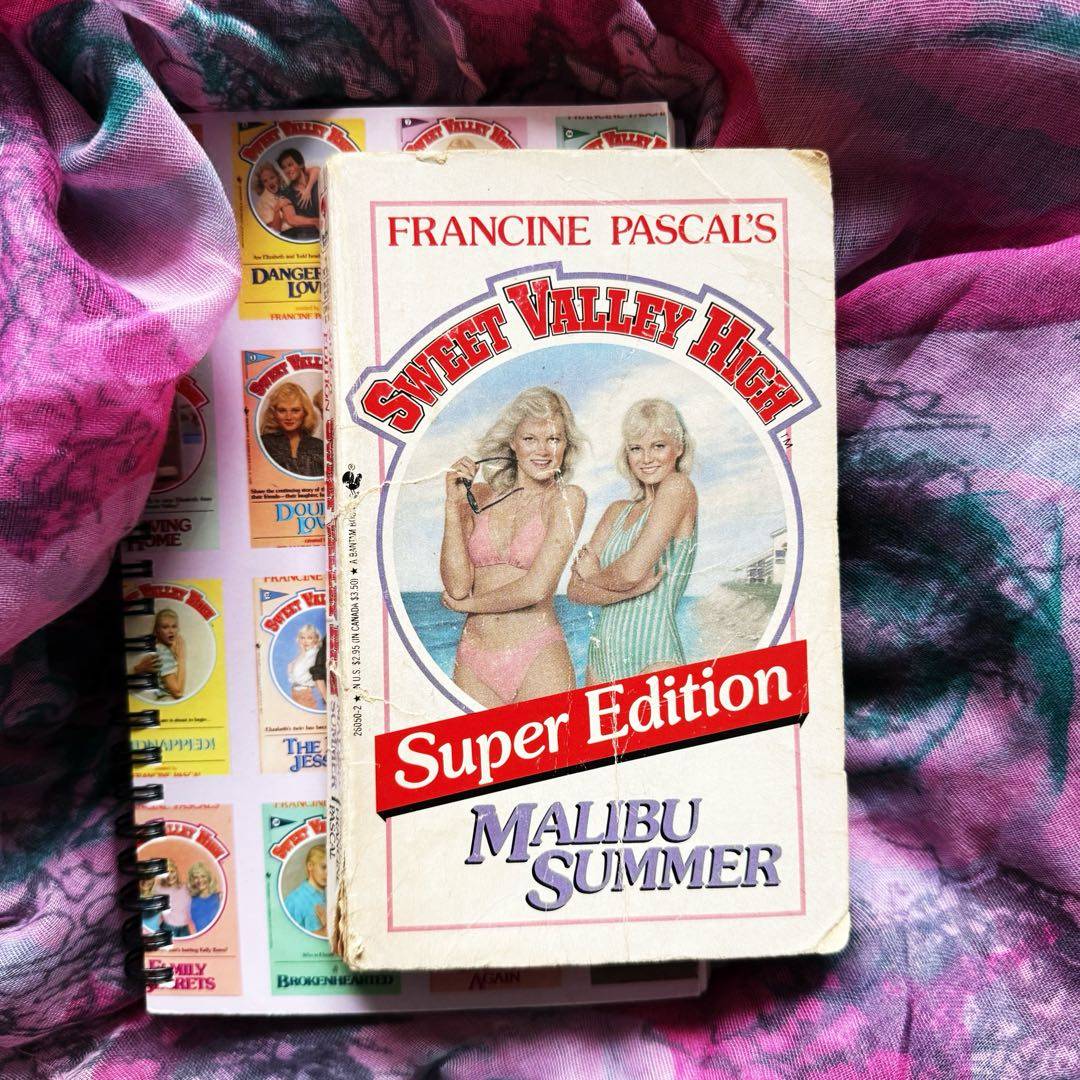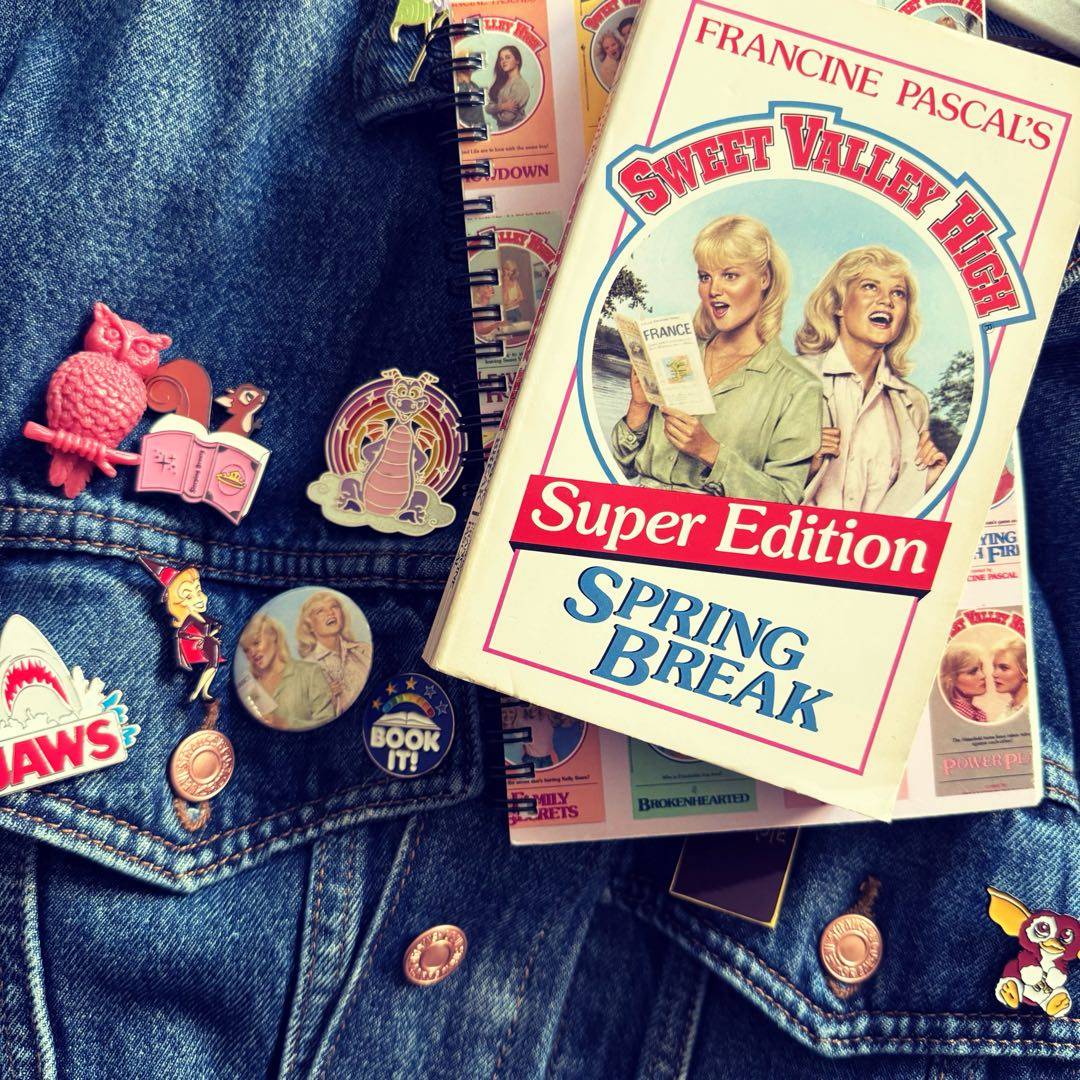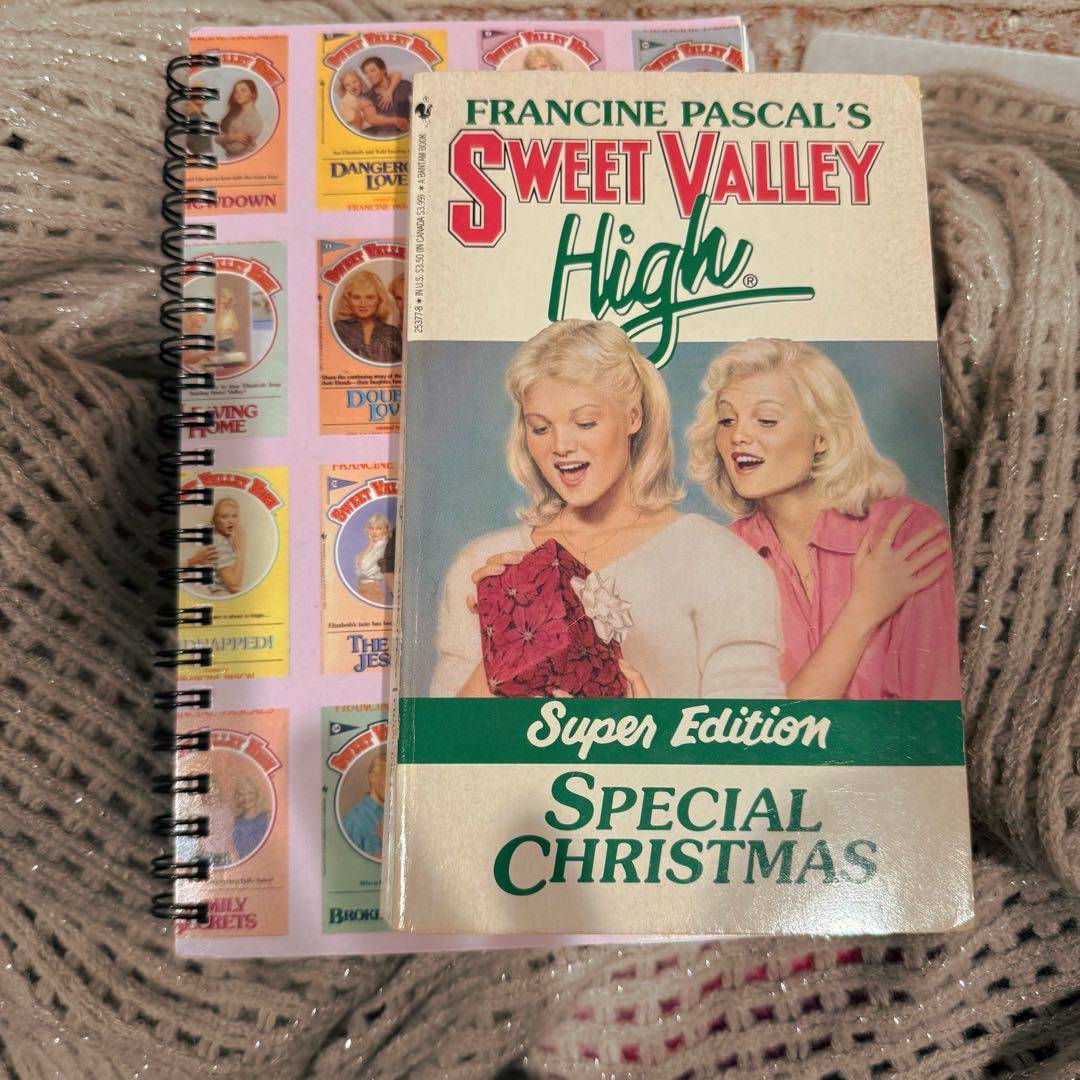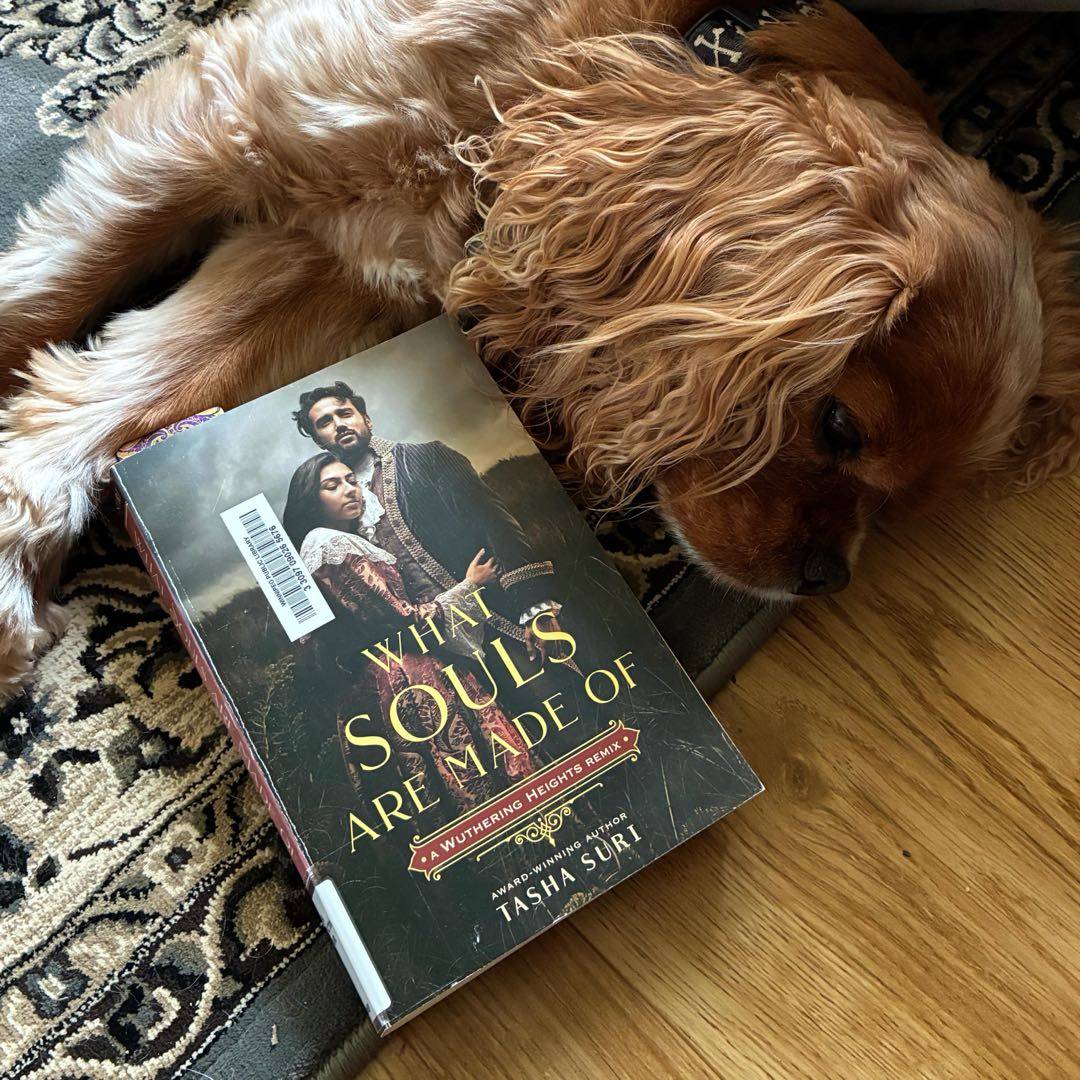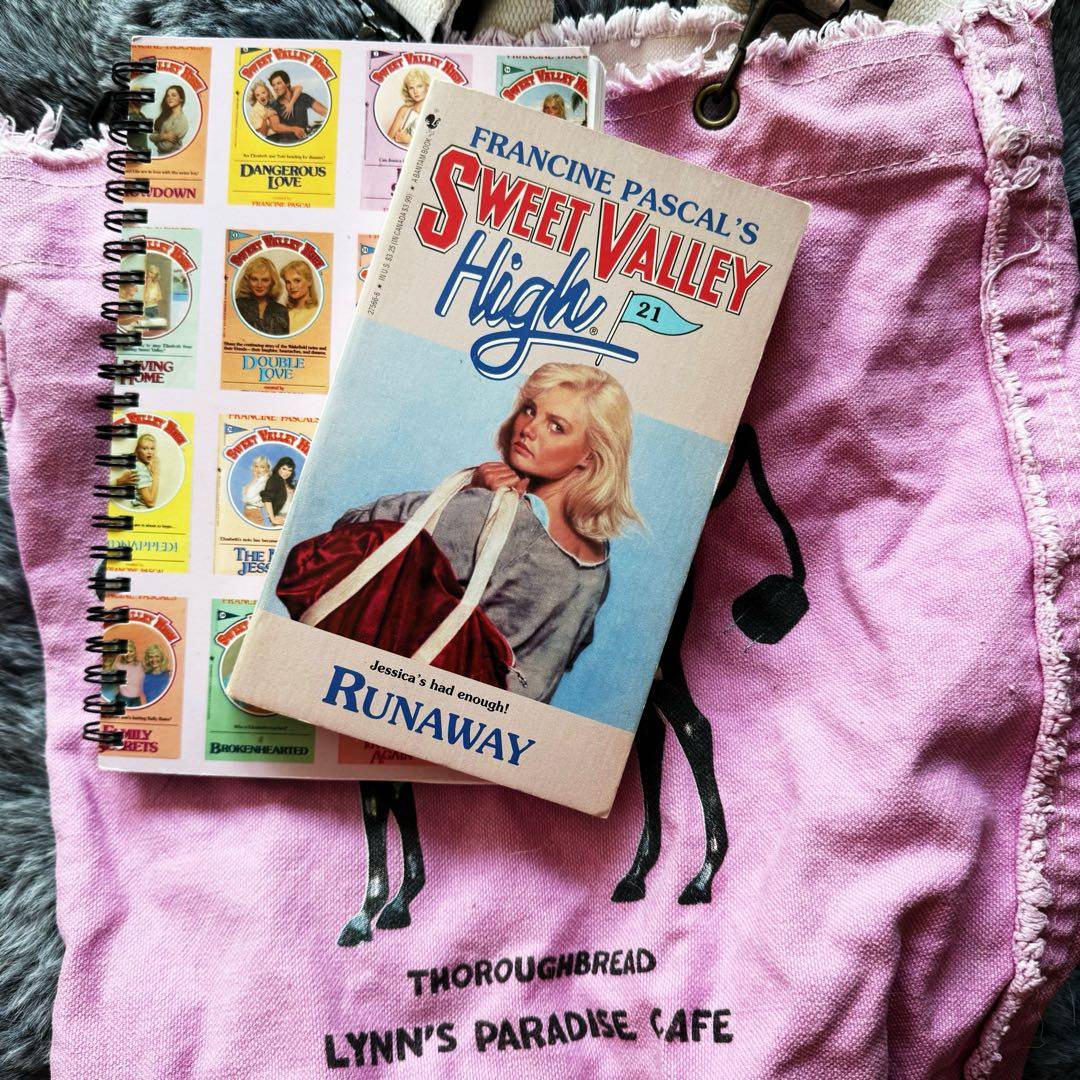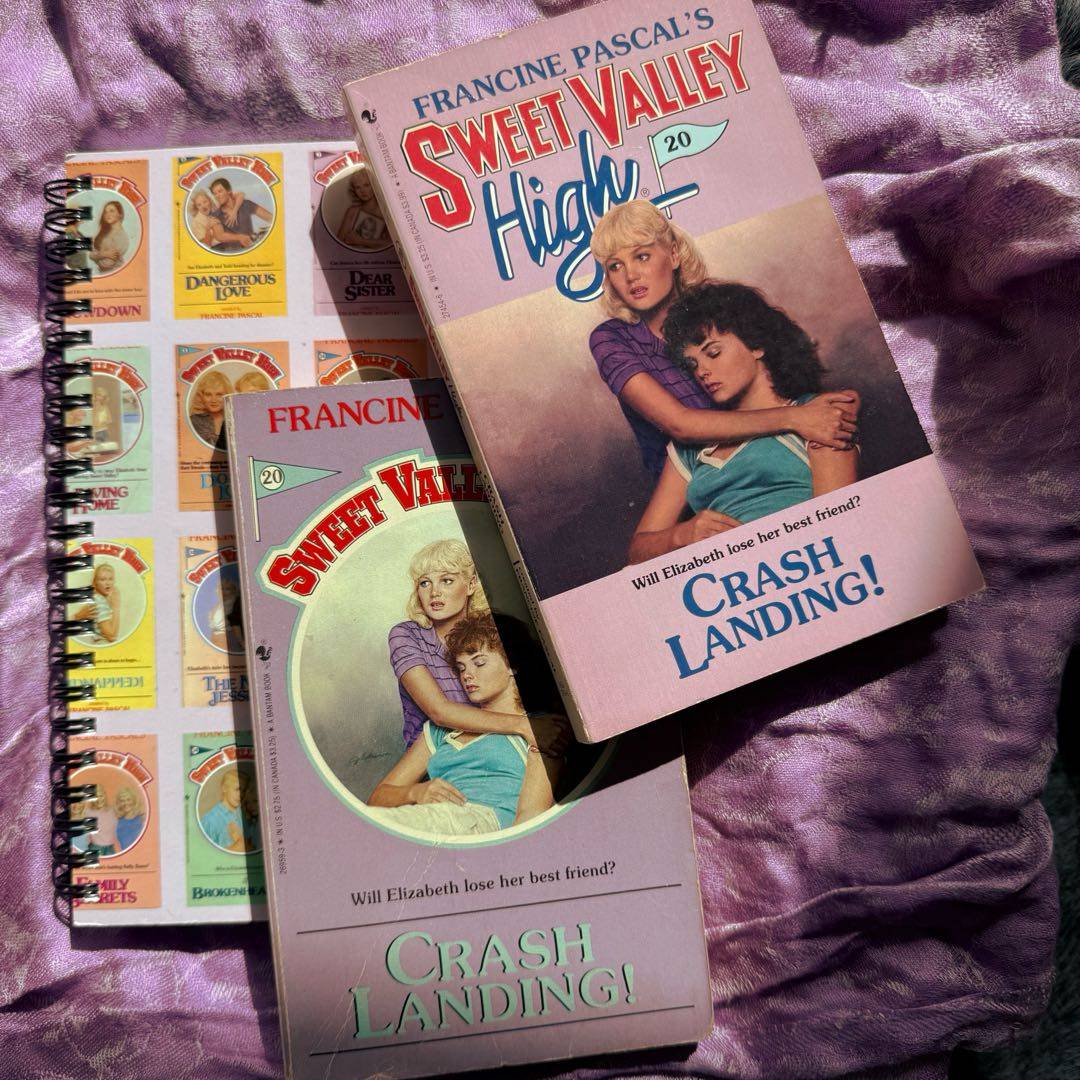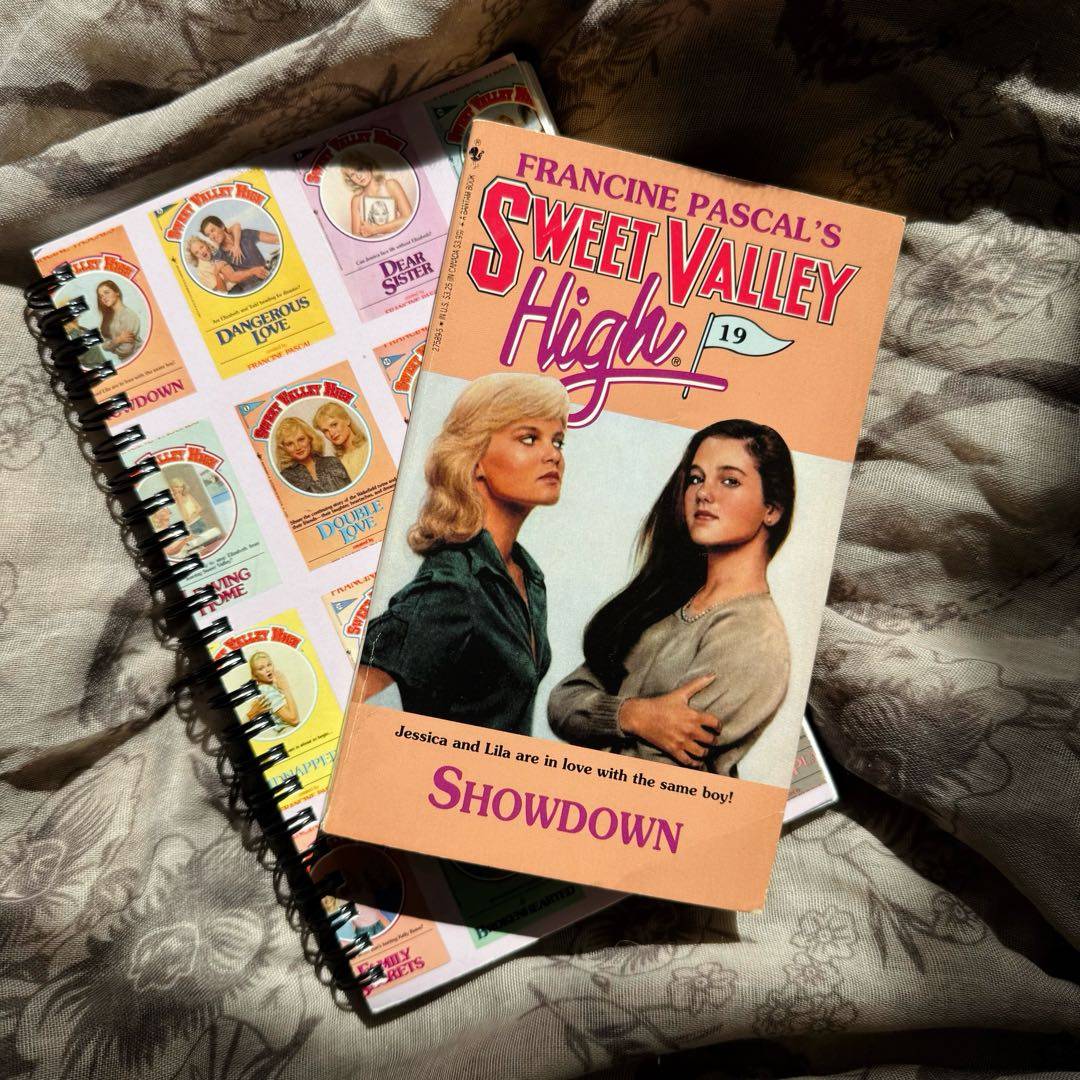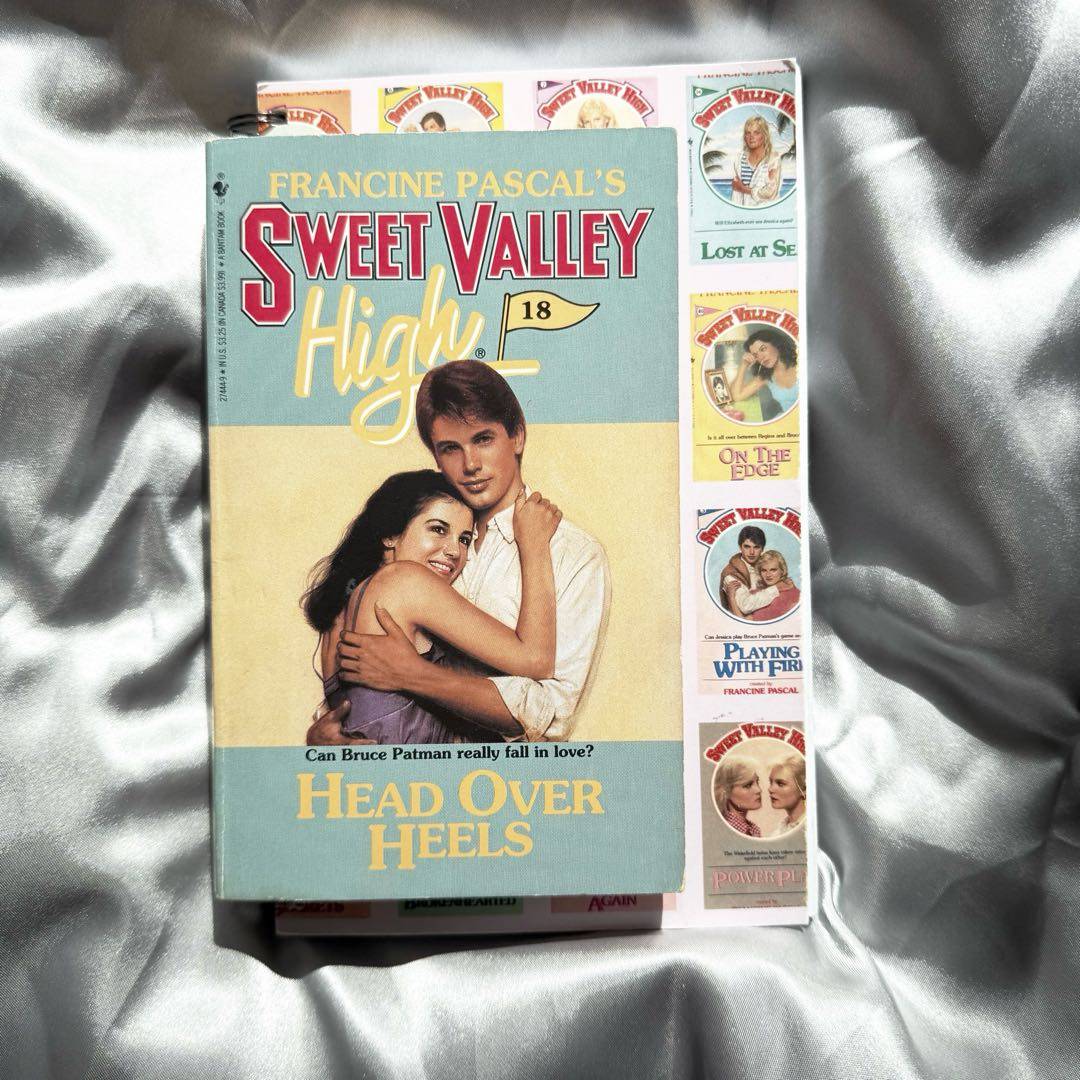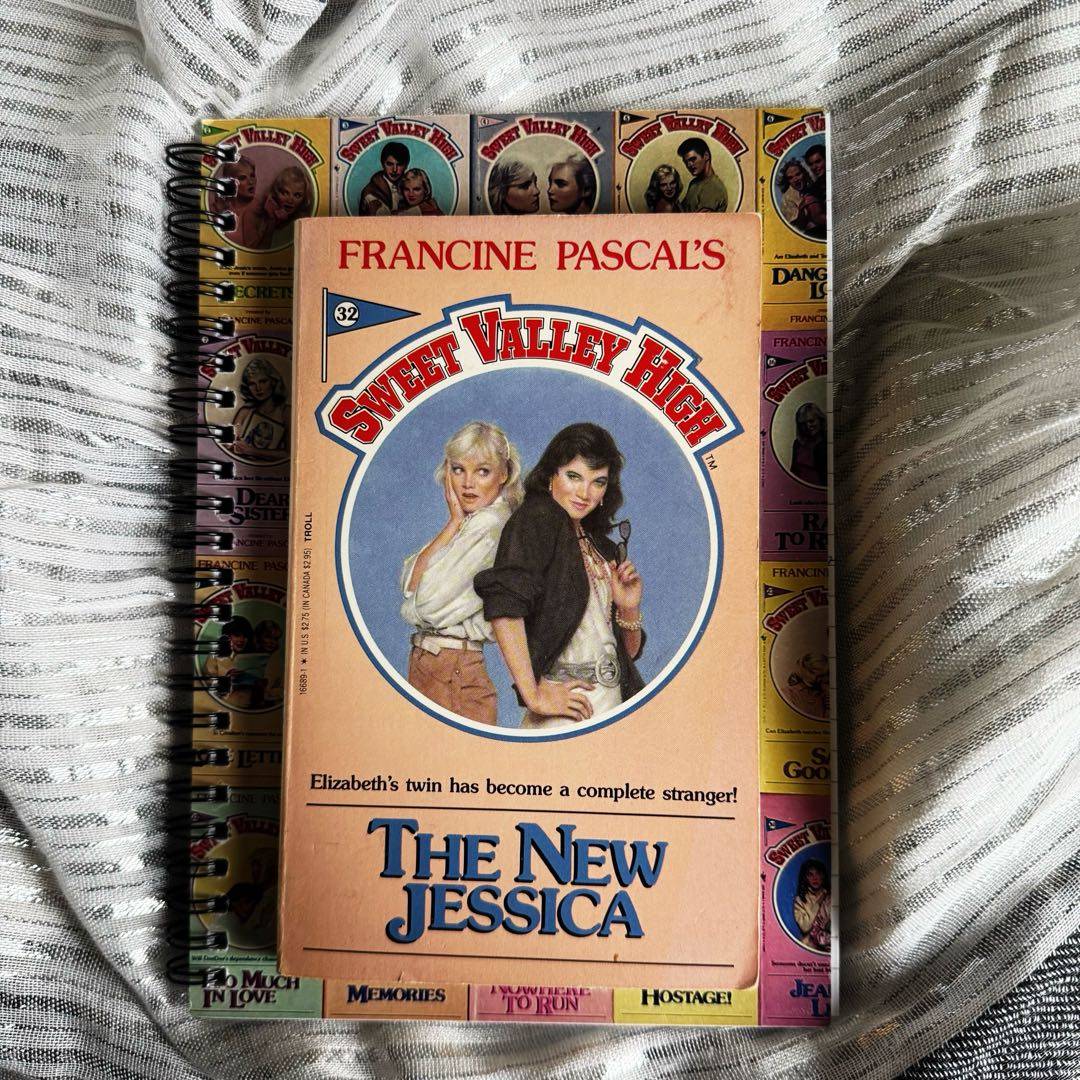
This is one of my favorites! Jessica has an identity crisis & is fed up with being mistaken for Liz. So she flatters Lila out of her Parisian wardrobe & dyes her hair black & speaking with a vague accent, causing quite the stir! Liz is miserable & feels like she lost her best friend & then loses her diary on top of it! Liz & Jeffrey fight too (Liz thinks he likes Jess & her new look more than her), but lands a mall modeling job that Jess wanted!







